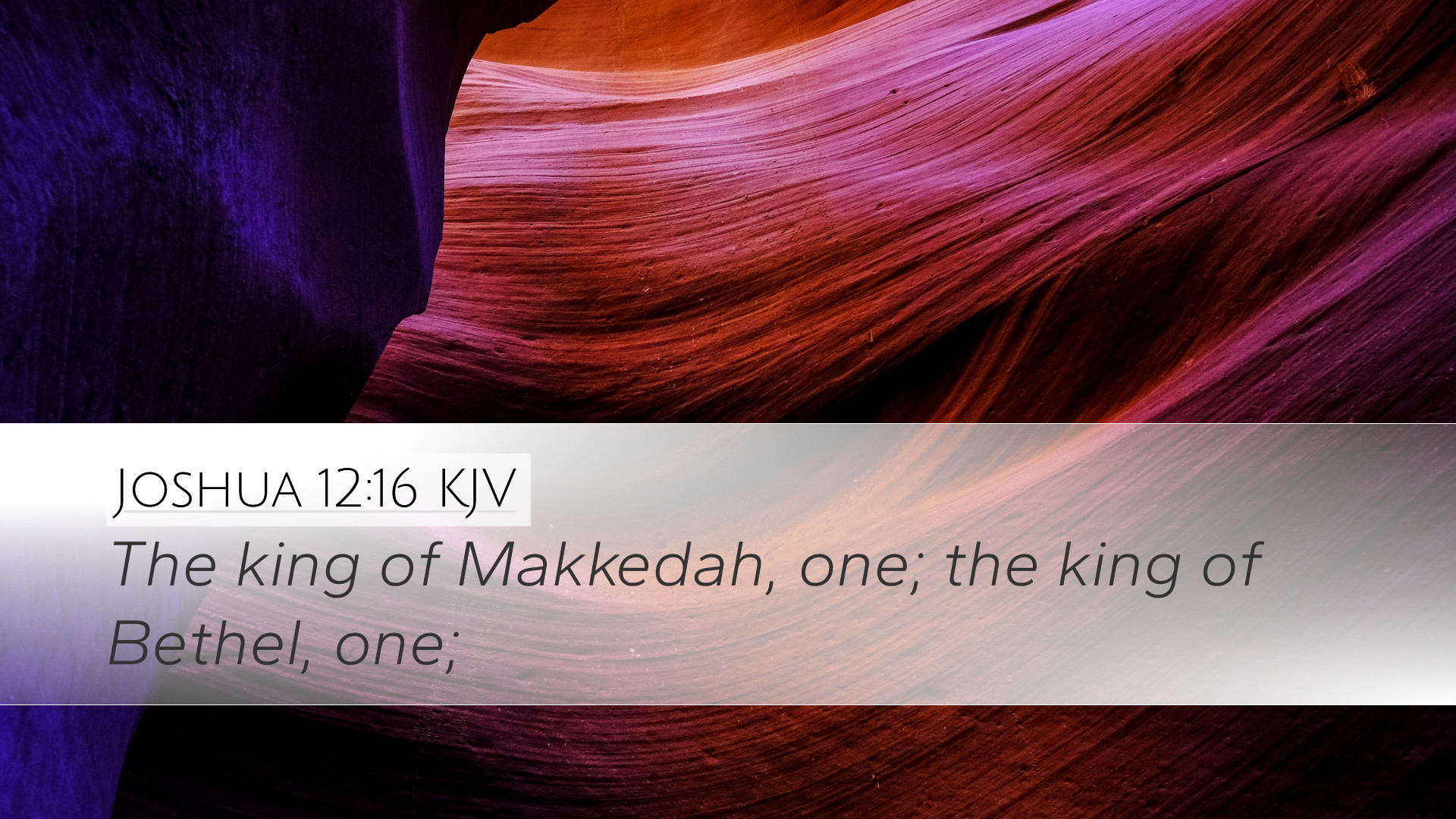Commentary on Joshua 12:16
Verse: "The king of Debir, one; the king of Geder, one."
Introduction
The verse from Joshua 12:16 concludes a section detailing the victories of Israel over the kings and territories of Canaan. It may appear straightforward, listing the defeated kings of Debir and Geder, yet within this brevity lies rich theological and historical significance. Notably, insights from the Public Domain Commentaries of Matthew Henry, Albert Barnes, and Adam Clarke help us grasp the depth of this passage.
Contextual Background
The Israelites, after their exodus from Egypt, entered the Promised Land under the leadership of Joshua. The narrative in Joshua 12 chronicles the conquest of the land, specifically detailing the kings defeated in battle. This verse encapsulates part of that conquest, indicating not only the military success but also a theological affirmation of God’s promises to Israel.
Political Implications
In the ancient Near Eastern context, the destruction of kings was a key sign of a nation’s strength and religious favor. This specific passage reinforces the idea that the victories Israel experienced were not solely due to military strategy but were divinely ordained.
The Kings of Canaan: Symbolism and Significance
- King of Debir: Debir, meaning “the speaker,” is emblematic of wisdom and influence. Its capture signifies the triumph of divine wisdom over idolatry and false teachings prevalent among Canaanite cities.
- King of Geder: Geder was associated with fortified cities. The defeat of the king here shows the dismantling of human defenses against God’s power. This reflects on the believer's assurance that no stronghold can withstand God's purposes.
Theological Reflections
Matthew Henry notes that the destruction of these kings is emblematic of cutting off the remnants of wickedness from God's people. In his view, this is a foreshadowing of the ultimate victory believers have in Christ over spiritual strongholds.
Albert Barnes elaborates by highlighting that each victory was a fulfilment of God’s promise to secure the land for Israel. He points out that every city symbolizes different types of spiritual battles that believers may face today, indicating that the victory isn’t just historical but ongoing in the life of faith.
Practical Applications
For pastors and church leaders, this verse serves as a reminder of the importance of a holy and dedicated life. Just as Israel was called to conquer the land, believers today are called to conquer the sin in their lives. This aspect invites introspection about the areas we need to “defeat” in our spiritual journeys.
Faith and Victory
Adam Clarke emphasizes that the battles faced were not merely physical but deeply spiritual. For modern believers, the emphasis on prayer and reliance on God’s strength becomes paramount. Clarke suggests that recognizing our own strengthlessness in overcoming sin leads to a deeper reliance on God.
Conclusion
Joshua 12:16, while appearing simple, encapsulates profound insights into Israel's conquest and the spiritual battles believers face today. The kings of Debir and Geder remind us of the importance of wisdom, strength, and reliance on God. As we reflect on these truths, we're challenged to actively engage in the spiritual warfare present within our lives, embodying the same faith that led Israel to victory.
Ultimately, the victories documented here serve to encourage believers that through faith, nothing is impossible with God. Each 'king' we face today can be overcome through His power, assurance, and the promises found within Scripture.


